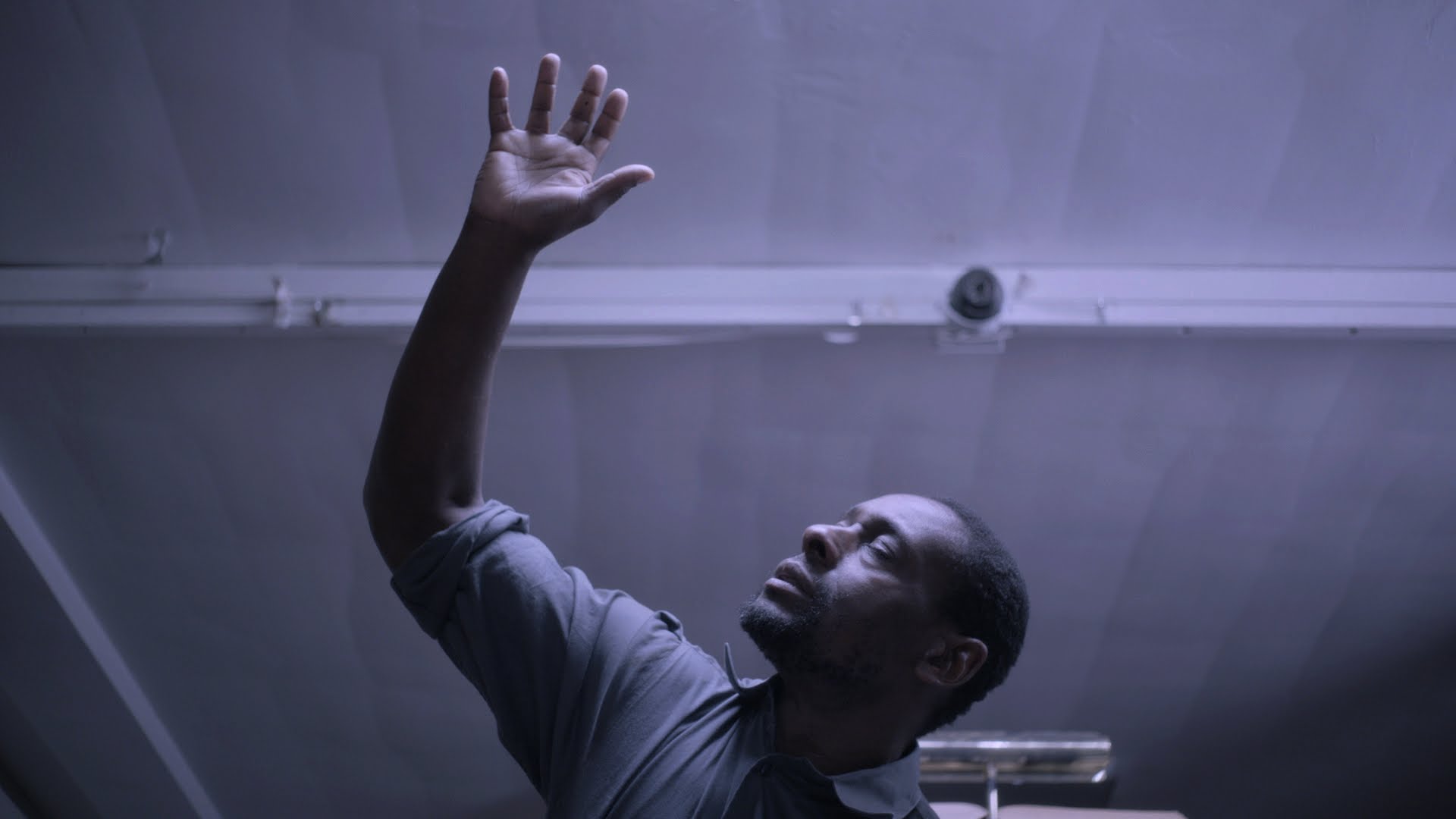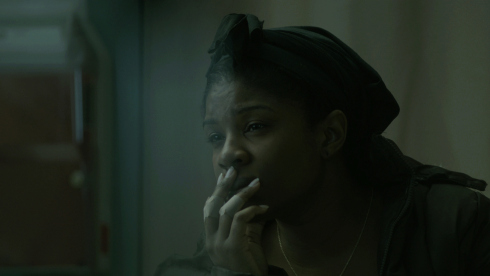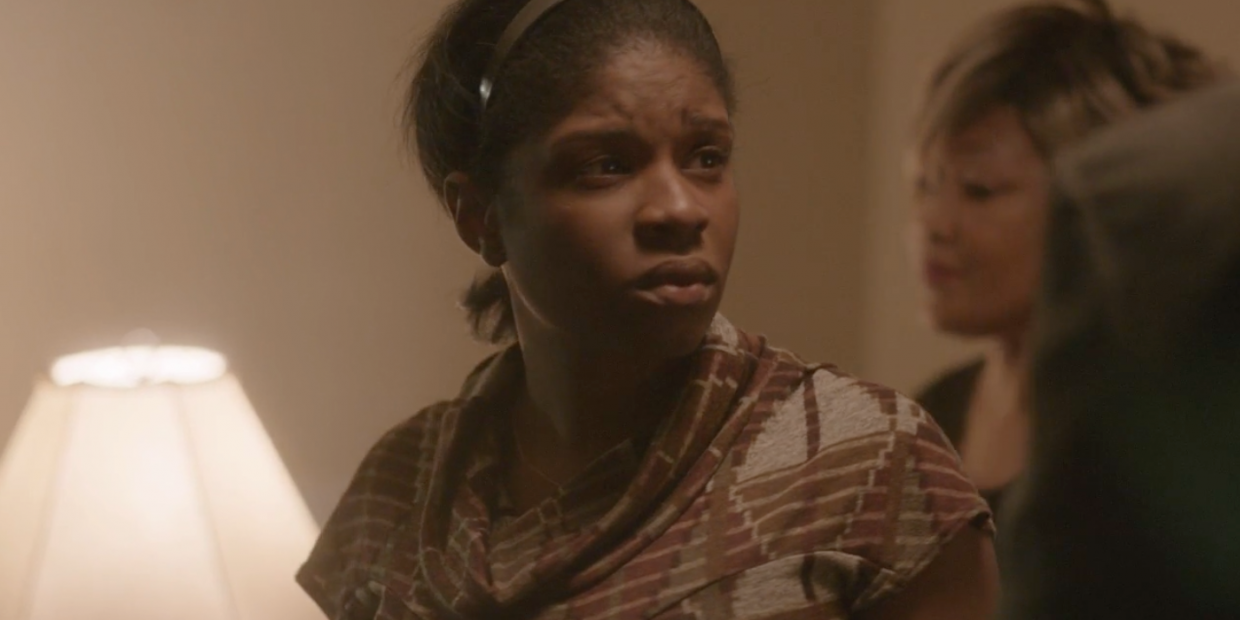By David Pountain
Directed by Jake Mahaffy
Venice Film Festival review
In the Old Testament’s Book of Job, the consistently devout eponymous man, after suffering a horrendous series of undeserved misfortunes, is forced to accept that the order of the universe is beyond his understanding. He is met with the revelation that all he can do is endure through life’s hardships and trust that all which happens is part of God’s plan. Free in Deed, in some ways a modern day retelling of this story, finds little comfort in this conclusion, portraying religion itself as a catalyst in the suffering of its characters. The problems of Abe, Melva and her afflicted son Benny are dealt with through archaic and smothering methods of demon-purging. When this doesn’t work, the knee-jerk explanations of grand schemes and tests of faith will only suffice for so long.
The most overt of these aforementioned hardships in Jake Mahaffy’s feature is that of Melva’s duty to care for Benny, whose severe developmental disorder renders him a danger to himself and others. With limited medical aid available, Melva turns to her local church for spiritual healing. This healing often takes very literal and supposedly miraculous form through a series of jubilant ceremonies in which Abe, a man with a murky past that still weighs heavily on his conscience, puts the spirit of God in people with just the touch of his hand. Free in Deed underscores the psychology behind these theatrics – not with derision but with sincere feelings of disillusionment. As the loud, often forceful methods of curing Benny prove ineffective, the gospel-fuelled merriments come across as increasingly hollow and irrelevant, reduced to a roaring din when heard through the ears of the young, sensitive child.

Ultimately the church suffers from a lack of understanding that renders them no more productive than the medical professionals who treat Benny with barely masked dismissiveness. These perceptions are reflected in the camera’s often strange relationship with the child, sometimes framing him as a human being, other times as a disruptive problem.
The film’s moments of genuine solace generally come in the form of physical human affection but these respites are restricted by the antiquated values of a church that considers toy lightsabers too sinful for a family environment. With a visual palette characterised by cold blues, browns, greys, blacks and whites, an extended hug in this film’s environment is breaking the mould so sex is out of the question. Consequently, intense emotions often remain bottled up and the excellent cast conveys the journey of these concealed feelings vividly.

Benny’s disorderly outbursts at times come across as a more primal, overt counterpoint to the quiet despair of his adult watchers. But the nature of this contrast changes somewhat as the inner turmoil of the psychologically troubled Abe becomes ever more difficult to contain. In the film’s second half, Abe begins to exhibit states of confusion, frustration, discomfort and remove that are almost parallel to those of Benny. Perhaps the film’s most harrowing scene shows him pacing bemusedly between members of the congregation, dispassionately “˜saving’ individuals with a holy touch that even he no longer seems to believe in. Despite his colleagues’ insistence that his sins have been washed away, he still harbours a constant need for direction and forgiveness that becomes progressively pathological.
But Jake Mahaffy’s film wouldn’t be nearly as engaging had it been meant purely as a takedown of organised religion. Rather, the church is presented as a last resort for individuals who originally turned to more Earthly authorities and were met with stern indifference, hollow sympathy and occasional hostility. Melva and Abe’s struggles aren’t traced back to their devotion to a higher power but are represented within the context of the economic and racial factors that intensify an already trying situation. They may not be getting the help they need from their local congregation but that’s not to say that their doctors, employers and police officers will provide any salvation.





